Review: Gently Woke, Lacking in Bite with THOUGHTS & PRAYERS
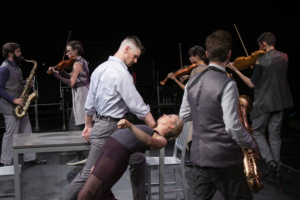
courtesy of Danse Theatre Surreality
What's one to do in a Trumpian world where imminent domain and gentrification have been all but weaponized as a means of displacement against (usually Black and Brown) people?
Take a look back at the hottest spots in Brooklyn; were there always so many artisanal coffee shops? More pressingly, do these artisanal coffee shops count as progress? Not for the team at Danse Theatre Surreality, whose "theatrical concerto about action and complacency", Thoughts & Prayers, recently premiered at TADA! Youth Theatre.
Conceptually, Thoughts & Prayers intercuts episodes of Alexis Robian's dialogue with confrontations between three saxophonists (billed as The Congress) and three violinists (billed as The Activists)--whose members sit on opposites sides of the stage, constantly making faces at each other--and a pas de deux for the evening's leading players, Emma Factor and Thomas A. Giles (who also serves as the the work's composer).
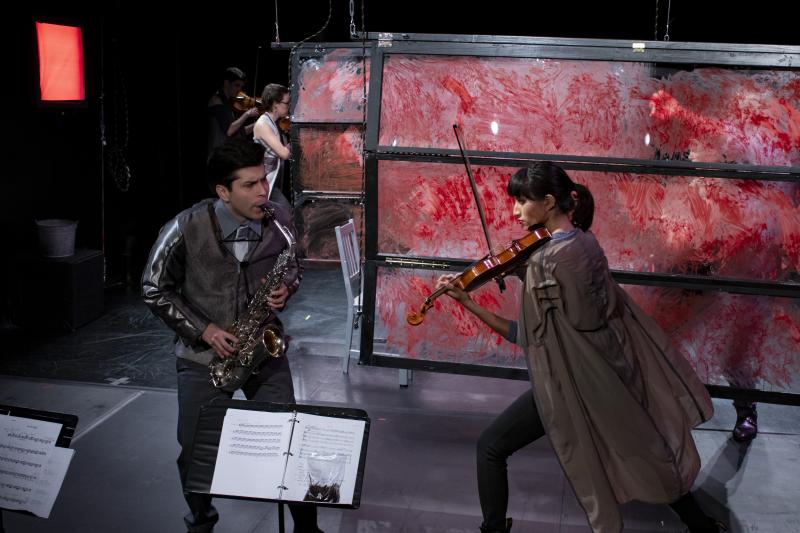
courtesy of Danse Theatre Surreality
Factor asks Giles to order her food and coffee and then expresses concern that they have displaced the original denizens of their neighbourhood. After Giles offers her assurance that they are not bad people, the music--a delectably boozy jazz score that wafts easily through the air--plays and the two begin to dance. Factor balances on one leg while her other leg reaches to the sky until she is executing a perfect standing splits (a penché.); Giles wraps his arms around her waist, lifting her as she contracts her body into a ball. Then she slides one leg down his front, until she is standing on his foot, and leans back against him as her other leg extends forward. She lunges away from him, then returns as he bends forward, serving as a table for her to lean upon.
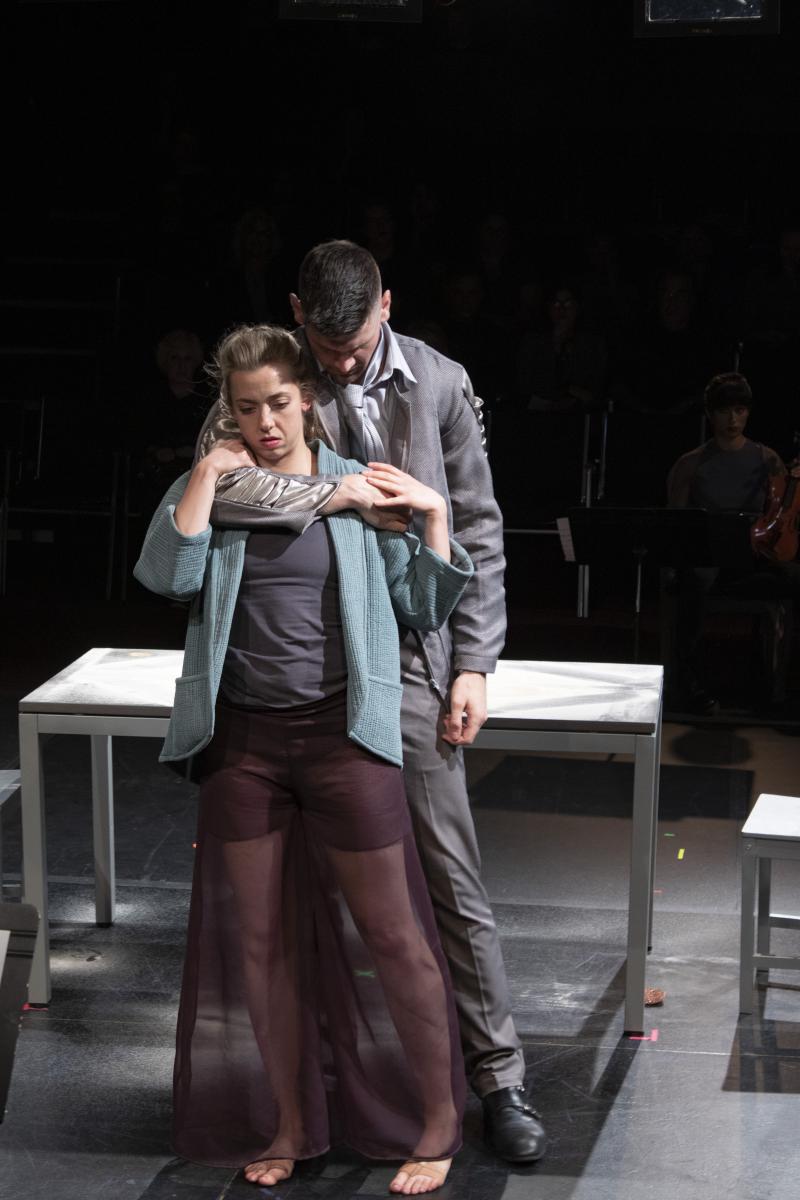
courtesy of Danse Theatre Surreality
What is interesting about watching this pas is that Factor does not need Giles to execute any of her choreography. That she always accepts his assistance serves as commentary on their relationship: she validates him as a source of physical comfort while he functions as moral assurance that they are not bad people.
Less interesting is the antagonism between the saxophonists and violinists who constantly pick at each other in the manner that adults like to imagine that squabbling children fight, harmlessly, when in fact children are vicious with each other. Because we know nothing about the source of tension between these two sides, their bickering comes across as fatuous. Yes, we can assume that the Activists and Congress are always pitted against each other, just as we can imagine that the two represent a clash between original community members and gentrifiers, but this is never adequately illustrated.
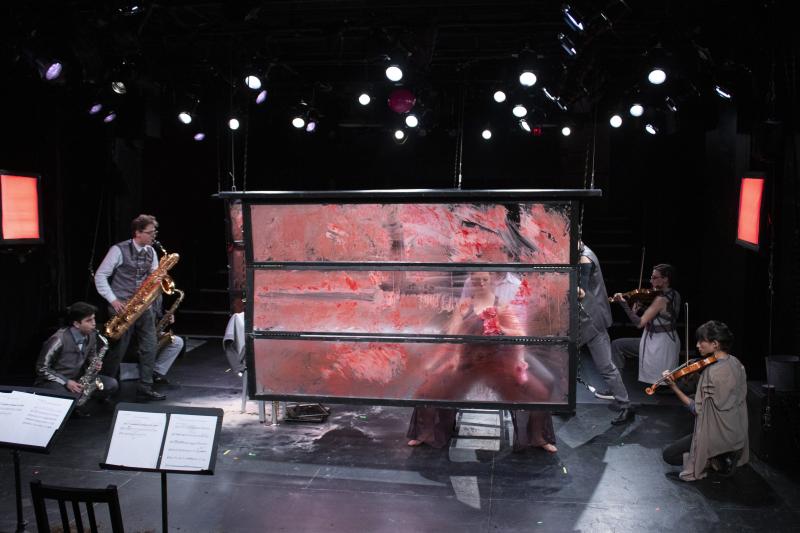
courtesy of Danse Theatre Surreality
The progression--scene, dance, music--repeats itself, though the subtext and line readings change to alter the scenario. The change never feels dynamic enough. It registers as the difference between honey in tea instead of raw brown sugar. As to shifts in staging and lighting--a panel covered in red paint descends from the sky, which the actors then scrubs clean while the musicians move across the stage--it looks radical until the panel rolls back up, signifying that little has changed.
In a dramatic turn that comes across as an after-school special approach to "can't we all just get along?", one of the saxophonists gesticulates reaching out to the violinists, who initially turn their bows up at him. Eventually they come around to play with him and his cronies until all are--you guessed it--in musical harmony. If only it were that easy.
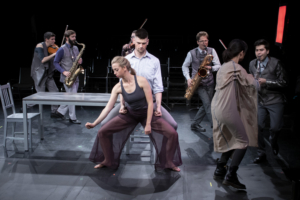
courtesy of Danse Theatre Surreality
Beautifully produced and obviously well meaning, Thoughts & Prayers reeks of a privileged view on what ails the other side. Feeling badly about negatively affecting "urban" communities is a lovely thing, unless that feeling is manifested in the most innocuous manner possible. I'm not sure that Thoughts & Prayers amounts to more than the cynical thoughts and prayers that politicians soberly mutter whenever a mass shooting occurs. But then, perhaps that was the point.
Thoughts & Prayers ran September 19th through September 29th, 2019 at TADA! Youth Theatre.
Reader Reviews
Videos

